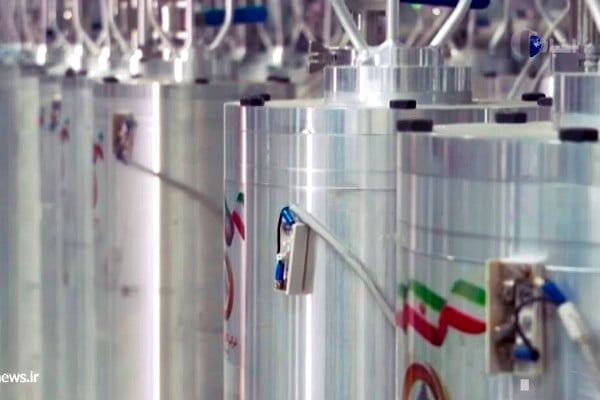United Nations nuclear watchdog organization warns that Iran has ratcheted up uranium enrichment operations at its underground Fordo facility.
By World Israel News Staff
The United Nations nuclear watchdog agency warned over the weekend that Iran is ramping up uranium enrichment operations at an underground facility.
In a report released Saturday, the International Atomic Energy Agency (IAEA) said Iran has expanded its use of advanced centrifuge cascades at its Fordo facility, allowing Tehran to rapidly enrich uranium to higher purity levels than previously possible.
“On 7 July 2022, Iran informed the Agency that, on the same day, it had begun feeding the aforementioned cascade with UF6 enriched up to 5% U-235,” the IAEA report said, Reuters reported.
“On 9 July 2022, the Agency verified that Iran had begun feeding UF6 enriched up to 5% U-235 into the cascade of 166 IR-6 centrifuges with modified sub-headers for the declared purpose of producing UF6 enriched up to 20% U-235.”
The move violates the 2015 nuclear deal, which capped Iran’s uranium enrichment at 3.67%.
At the same time, the Fordo operations remain far below the 90% enrichment level to produce weapons-grade uranium. The 20% enrichment operations are also below the 60% level already achieved by Iran at other facilities.
Iran is estimated to have already accumulated sufficient uranium at the 60% enrichment level to begin work on achieving a 90% enrichment level with sufficient fissile material for an atomic weapon.
The latest upgrade to Iran’s enrichment efforts comes amid continued talks in Vienna aimed at bringing Iran back into compliance with the 2015 nuclear deal. While negotiations appeared poised for a breakthrough in March, talks have remained stalled for months.
The U.S. recently expressed alarm at Iran’s progress towards nuclear weapons capability, with U.S. special envoy for Iran Robert Malley noting that Iran is just “weeks away” from having sufficient enriched uranium to produce a nuclear weapon.
“They’re much closer to having enough fissile material for a bomb,” Malley told NPR earlier this month.
“We’re, of course, alarmed, as are our partners, about the progress they’ve made in the enrichment field, and that’s why we think that getting back to the deal is in our nonproliferation interest.”





